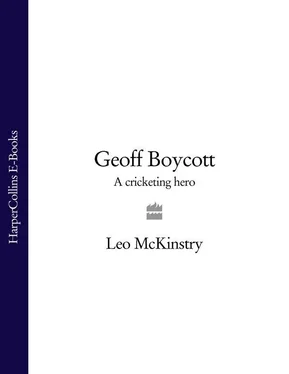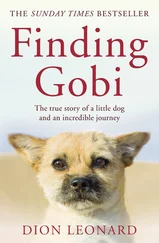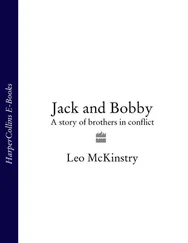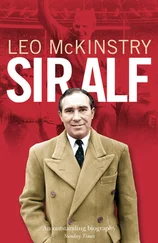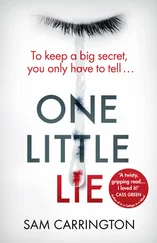Boycott’s performance made an even bigger impression on George Hepworth. On his return to RAF Bempton, he told the local postmaster, Reg Gardiner: ‘Watch out for this kid called Geoffrey Boycott. As sure as God made little apples, this kid will go all the way. One day you may well see him play for England.’ For years afterwards, George Hepworth used to tell Boycott of these words to Gardiner. ‘I’m not sure he ever believed me. Then, in 1984, I was at the Scarborough Cricket Festival, standing talking to Geoff. By coincidence, a million-to-one shot, Reg Gardiner came by. He turned to Geoff and said, “This gentleman said to me, thirty years ago, to look out for a kid called Boycott. Tha were an age comin’ through but, by God, he were right.”’
George Hepworth also recalls the time he ran out Boycott in a game against Stanley. Hepworth was trying to win the strike because he fancied taking on Stanley’s off-spinner. ‘I called him for a quick single and, poor little kid, his pads were almost under his chin while I, serving in the RAF, was pretty fit.’ Boycott was run out for 25, but Hepworth went on to reach his 50. ‘When I returned to the dressing room, Geoff was still sitting there in his pads, just peering over them. I fell about laughing and said, “Never mind, old cock, it were my fault, I were trying to pinch bowling.” He called me a cad.’
As well as playing league cricket for Ackworth, Boycott became involved in local, knock-out competitions. One of the teams he played for was an eleven organized by Bernard Conway, a professional rugby-league player with Hull. Conway has vivid memories of the young teenage Boycott: ‘He was not endowed with a brilliant natural talent but he was so single-minded and purposeful. He thought of every game as a battle with the sole aim of staying in.’ In the summers of 1954 and 1955, Conway entered his team in the Ackworth knock-out, winning in the second year in the final against the Plough Inn. These matches only lasted 20 overs and batsmen had to retire after scoring 25 runs. Conway recalls that Boycott seemed a little concerned that he would not be able to score quickly enough in the competition. ‘At the age of thirteen and fourteen he did not have any power in his strokes. He came to me and said, “What am I to do?” I told him not to worry. “Just get your twenty-five and leave the rest to us.” And he usually did, despite some barracking from the crowd. I remember I had a bet with one of the Fitzwilliam locals just before the final. He said to me: “Boycott will lose you this match. He scores so slowly.” I replied, “With him in the side, we’ve already got twenty-five runs on the board. And I’ll tell you something else. That lad might play for Yorkshire.” “They’ll not even let him into the stripping room,” was the reply.’
Boycott was to carry on playing for Ackworth until he was sixteen, though he still continued to practise at the ground, even when he was a Test player. As might be expected, the club is proud of its association with the great cricketer and has given him life membership. The Ackworth CC Chairman, Barrie Wathen, told me: ‘Geoff is always welcome here. We are honoured to have the connection with him. I know he’s a complex character, but personally, I have had a good relationship with him. George Hepworth says that when he was secretary at Ackworth, ‘nothing was too much trouble’ for Boycott. ‘If we were short of money, he would organize a Yorkshire side to come to the ground for a fund-raising game. He would also help to get us sponsors.’
As always with Boycott, however, the picture is complex. Today, other, more critical, voices are raised against him in the club. There are complaints that he has used people for his own ends, and that he has been selfish and rude. In particular, it is argued that he did little to assist when the club embarked on a major fund-raising drive to buy its own ground and thereby remove the threat that the land might be used for building. Fifty thousand pounds was needed to purchase the ground from its then owner, the Moorfield Development Company, and some members believed that Boycott should have stumped up the whole sum from his own pocket. But Boycott told the Yorkshire Post in November 1990: ‘It would be nice for the club to own their own ground and I have a great emotional attachment to Ackworth. I will certainly do all I can to help the fund-raising, but the club actually belongs to the community and they will have to make the biggest contribution.’
The fund-raising campaign was ultimately successful, the ground was bought, and is now superbly appointed. But the feeling among some senior figures is that Boycott never lived up to his promise. Indeed, it is a symbol of the ill-feeling in certain quarters that when the gates at the entrance to the ground, erected in his honour in 1971, were recently taken down, it was decided not to have his name on their replacements. Keith Stevenson, uncle of former Yorkshire player Graham Stevenson, told me: ‘He just used us all the time. He’s so selfish, forgets where he came from. People says he’s never bought them a drink. Well, I wouldn’t want him to.’ He told me of two incidents that strengthened his negative opinion of Boycott: ‘We used to run testimonial matches here for him in 1984, when money were short because of the miners’ strike. At one match, we had a beautiful spread in the clubhouse for tea, all home-made stuff. I was umpiring and as we came off the field at the end of one innings, Boycott says to me, “Is there some tea on, Keith?” I replied, “Ay, we’ll have twenty minutes.” Then Boycott says, “We’re having no break. We’re going straight out again.” So I told him, “If tha’s goin’ out, tha’s goin’ on tha own, because we’re havin’ tea with the rest of the teams.” And, you know, he stayed in the pavilion, never came down to the clubhouse, though we had laid on all this food for his testimonial. That were Mr Boycott.’ The second incident occurred when Keith Stevenson and his father gave Boycott a lift to a match at Middlesbrough: ‘Never offered me petrol money, of course, and then he says to my dad when we arrived, “Will thee go down shop and bring me lump of red cheese.” Me dad were only a miner but he got him this block of cheese – I know it sounds stupid but Boycott loved red cheese – yet Mr Boycott never paid and never thanked me for the lift. And then, at the end of play, we sat in the car park waiting for him, only to find that he had buggered off with a young lass.’
Another member of the club, Doug Lloyd, who played with Boycott in the Ackworth team as a teenager, is equally scathing: ‘You won’t get me knocking him as a cricketer but as a man I detest him. He is what you call a self-centred bastard. And he’s always had a short temper. I remember when he were a lad, fourteen or fifteen, if he got out he would cry and sulk and sit on his own.’ Doug Lloyd has a personal reason for his feelings towards Boycott. His son, Neil, was an outstanding young cricketer, playing for England Schools and the national youth side. Many observers, including Fred Trueman, felt that he was certain to play for England. Yet, within a week of playing a junior test match against the West Indies in September 1982, he died suddenly at the age of just 17. The shock of this tragic blow reverberated throughout Yorkshire cricket. ‘All the Yorkshire players and the entire committee came to Neil’s funeral, except that bastard Boycott. I’ve played in his benefit matches, taken time off work for him, and then he never showed up at my son’s funeral. That were it for me that day.’ Boycott was taken aback by the vehemence of Lloyd’s reaction, especially because he had written a letter of sympathy to the family the moment he had heard the tragic news about Neil. He said, ‘I don’t like funerals. I never go to them. The only funerals I have ever been to are my dad’s in 1967 and my mum’s in 1978. Doug and his wife were sad – understandably sad – and they took it out on me.’
Читать дальше
